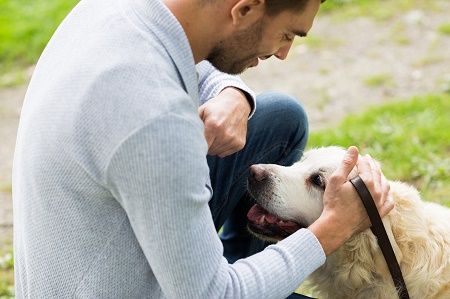

One of the toughest issues for homeowner associations and condo associations is how to handle pet policies. Before you can establish policies, you should understand the differences between “common household pets” and “service animals” (also known as “assistance animals” or sometimes “therapy pets”.)
For common household pets, the associations can develop their own rules for what kinds of pets (dogs, cats, snakes, birds, etc.), how many residents can have of any kind of pet, whether the pets need to be spayed/neutered, the weight of the pets, whether they must be leashed or accompanying pet owners at all times (eliminates cat owners from having “outdoor cats”), assign pet-friendly areas and how to handle pet waste (doggie bags).
Here are some guidelines for creating a typical pet animal policy for associations:
Here are the Humane Society’s recommended Pet Policies for condominium associations.
While pets are often considered a fun addition to the family, service animals are not pets. Service animals are animals that work, provide assistance, or perform tasks for the benefit of a person with a disability, or provide emotional support that alleviates one or more identified symptoms or effects of a person’s disability.
Assistance animals perform many disability-related functions, including but not limited to:
Under Fair Housing Act (FHA), a disabled person may use or seek to use an assistance animal in housing where the provider (the association) forbids residents from having pets or otherwise imposes restriction or conditions relating to pets and other animals.
While homeowner and condo associations wants to do the right thing and be compliant with the laws on this issue, too many times an application for a service animal or assistance animal is seen as trying to circumvent the rule.
Recently the U.S. Department of Housing and Urban Development issued a memo about when it comes to the question of a service animal. Under the Americans with Disabilities Act, the regulations narrow the definition of service animal specifically to dogs. “Other species of animals, whether wild or domestic, trained or untrained, are not service animals”. Additionally, the definition of “service animal” excludes emotional support animals.
To read more of this memo, click here.
Creating a pet or service animal policy for your association can often be a simple matter of laying out ground rules for your members. However, if you have a “no pets” policy, you need to be prepared for how to handle a service animal request. For this, you may need to seek legal council to determine what can be allowed as far as requirements and restrictions are concerned.
CommunityPro® is an easy way to make payments, access association documents, view account history, stay informed and more.